How to Navigate Difficult Conversations About Addiction in Family Therapy

Understanding the Challenges
Discussing addiction within the family setting can be one of the most challenging yet crucial dialogues. Families often face the struggle of figuring out how to approach these sensitive topics without causing further harm. With the right framework, support, and strategies, these difficult conversations can become constructive, helping both individuals and their families move towards recovery.
Recognizing and Addressing Addiction Signs
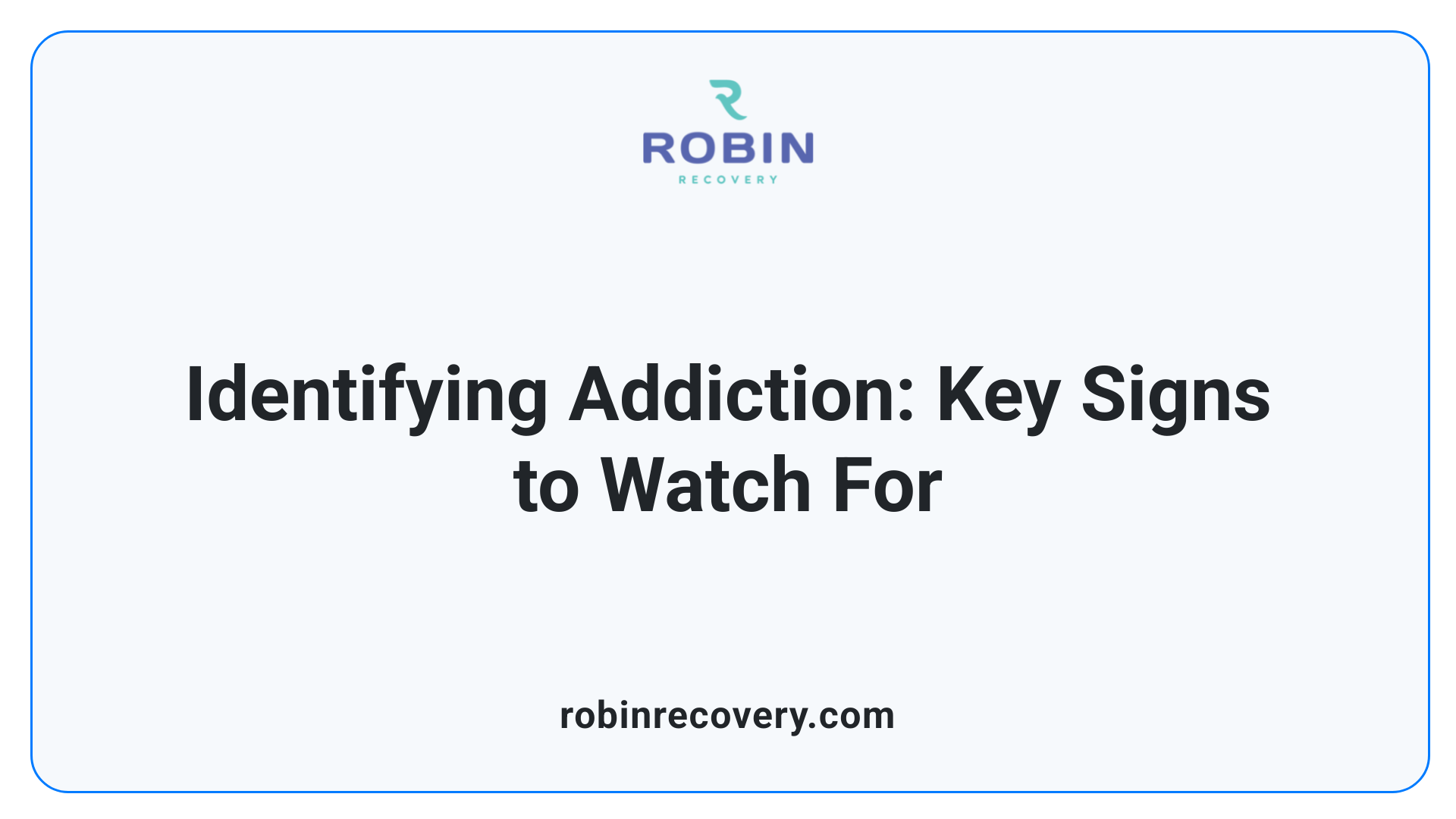
Identifying signs of addiction within the family
Recognizing addiction in family members can be challenging. Common signs often include:
- Behavior changes: Look for increased secrecy, withdrawal from family activities, and mood swings.
- Physical changes: Watch for neglect of personal hygiene, weight fluctuations, or frequent illnesses.
- Emotional indicators: Signs of anxiety, depression, or irritability can also indicate substance use issues.
- Risky behavior: Engaging in dangerous activities or risking relationships can be prevalent.
It's important to note that substance use can affect individuals differently, so remain observant and compassionate as you assess the situation.
Approaching the topic with family members
When discussing addiction with a family member, it’s critical to choose an appropriate time and setting. Here are key steps to follow:
- Find a calm moment: Ensure the conversation happens when the family member is sober and in a comfortable environment.
- Express concern gently: Start with statements like, ‘I’ve noticed some changes and I’m worried about you,’ to open a dialogue.
- Be specific: Provide examples of concerning behaviors to clarify your observations.
- Listen actively: Allow them to share their feelings without judgment, which fosters trust and understanding.
- Set boundaries: While offering support, establish clear boundaries to protect your own well-being.
Utilizing resources from organizations like Hazelden Betty Ford can educate you and support your family throughout this journey. Self-care remains vital, so consider joining support groups like Al-Anon or Nar-Anon to help manage the emotional challenges that can arise.
Therapeutic Skills for Family Recovery
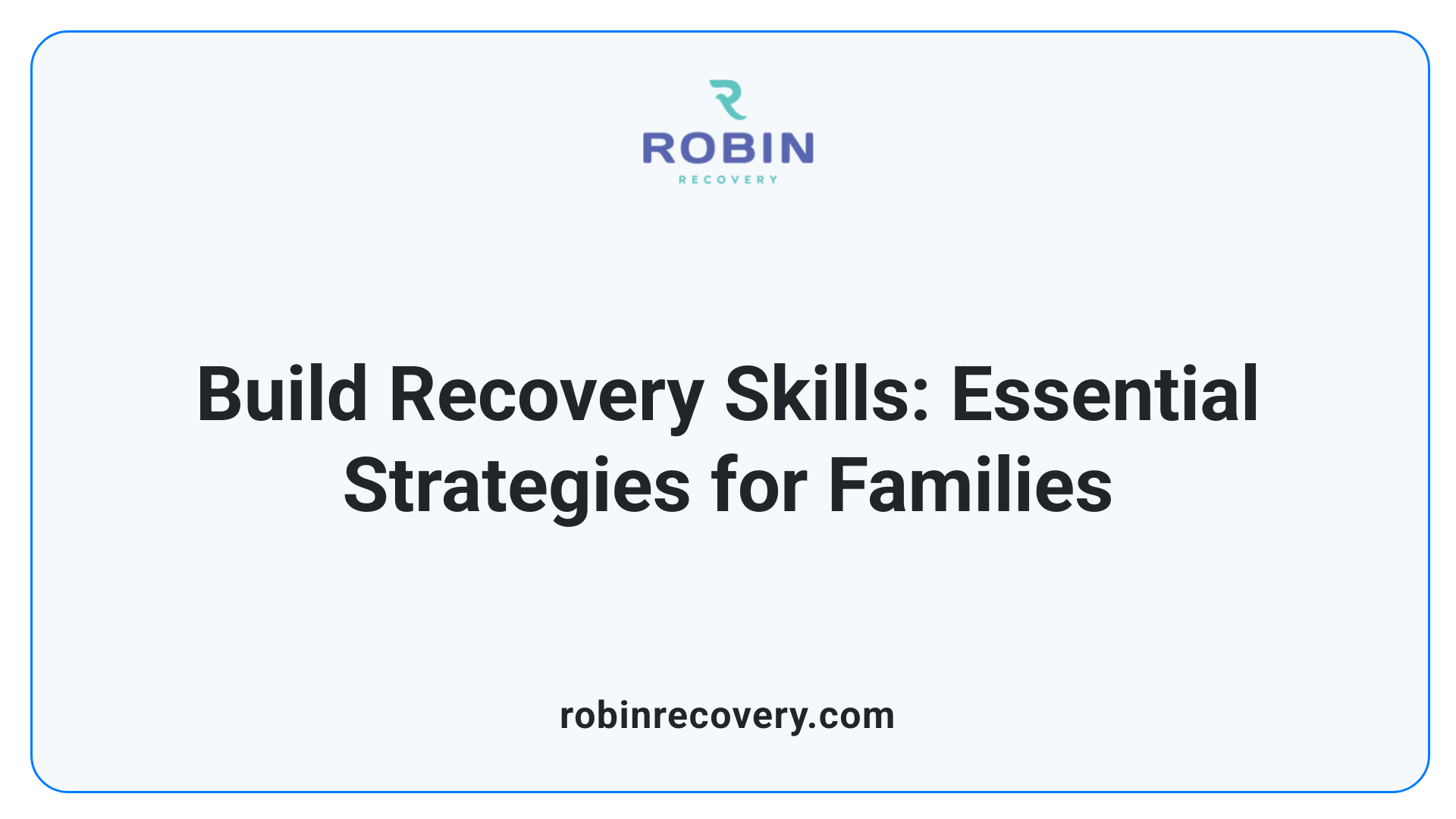
What new skills might a family therapist teach families dealing with addiction?
In family therapy aimed at addressing addiction, therapists focus on equipping families with essential skills that enhance their support systems and improve their dynamics. Here are some pivotal skills learned during therapy sessions:
- Assertive Communication: Families are taught how to express their feelings and concerns effectively without casting blame. This encourages openness and reduces defensiveness.
- Setting Boundaries: Establishing and enforcing boundaries is crucial. Families learn to define personal space and acceptable behaviors, creating a safer environment for all members.
- Negotiating Rules: Clear, mutually agreed-upon household rules help cultivate accountability and structure, promoting a sense of responsibility within the family.
- Relational Reframing: This skill encourages family members to view each other’s behaviors through a lens of empathy, helping them understand underlying motivations rather than reacting with frustration.
- Family Restructuring: Adjusting family roles and beliefs fosters better communication. The therapist helps families address and discuss past issues that may have contributed to the cycle of addiction.
These skills not only improve family relationships but also support the loved one struggling with addiction, ultimately promoting a healthier recovery environment.
Effective Family Interventions
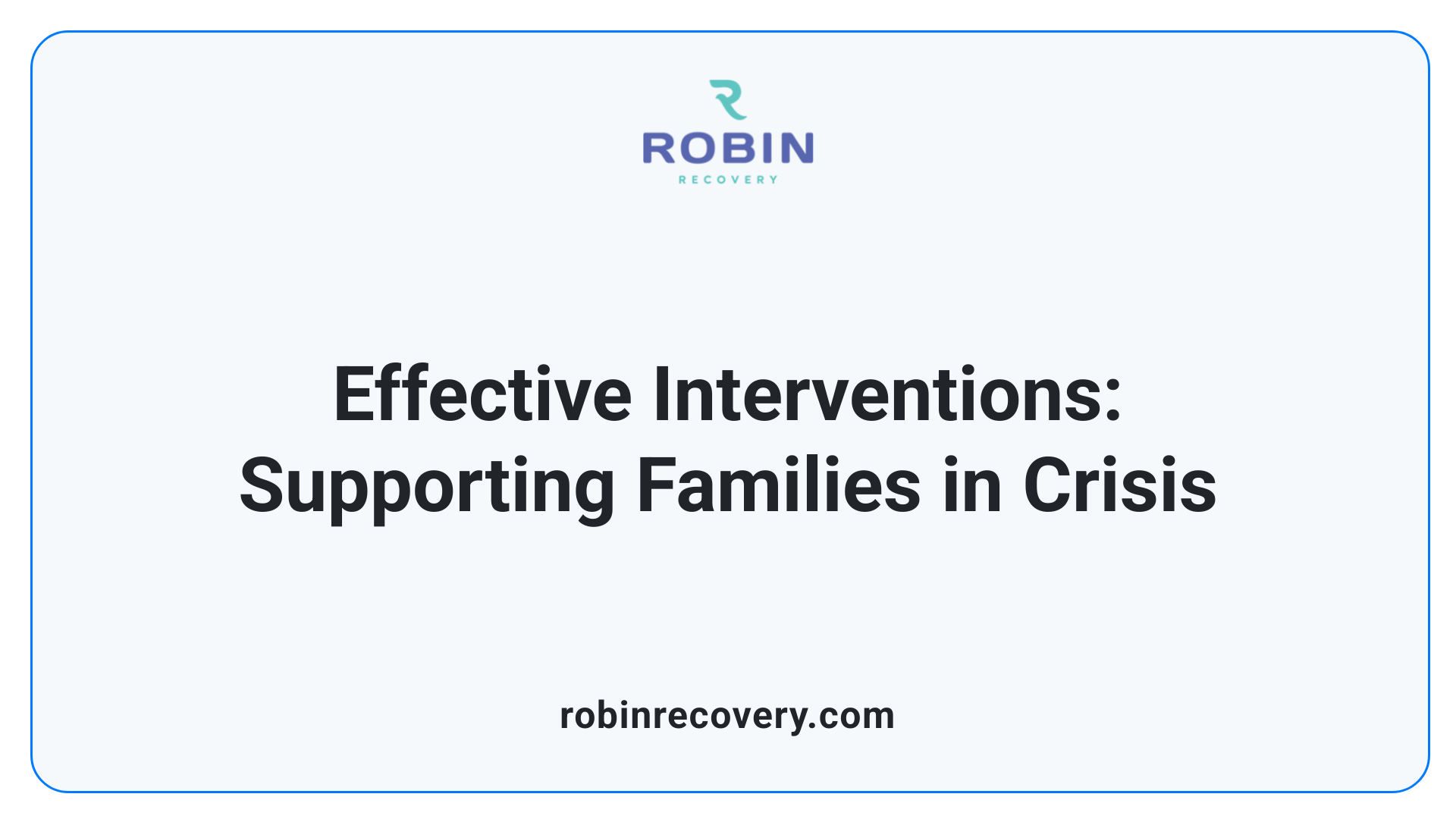
What interventions are effective for helping families cope with addiction?
Effective interventions for families coping with addiction include various forms of family therapy such as:
- Family Behavior Therapy (FBT): Focuses on improving communication and behavioral patterns within the family unit.
- Behavioral Couples Therapy (BCT): Enhances relationship dynamics to support recovery through mutual positive reinforcement.
- Brief Strategic Family Therapy (BSFT): Addresses specific behaviors and patterns within the family that may contribute to substance misuse.
Research shows that engaging families in treatment not only strengthens the support system for individuals but also improves treatment retention and reduces relapse risks. These therapies emphasize the role of family dynamics in the recovery process, allowing family members to foster a nurturing environment where the person with a substance use disorder (SUD) can thrive.
However, it is essential to consider the unique family dynamics at play. Family therapy may not be suitable when members are actively using substances or displaying violent behavior. Resources like SAMHSA’s National Helpline can assist families in identifying the best supportive strategies and referrals to treatment facilities, ensuring they have access to essential support during challenging times.
Intervention Strategies
When addressing substance use within a family, certain strategies can pave the way for effective discussions and support. Here are key approaches to consider during the intervention process:
- Careful Planning: Gather information on the loved one’s substance use and enlist the help of an addiction professional to ensure a safe and focused intervention.
- Personalized Messaging: Each family member can share personal experiences regarding how the addiction has impacted them, fostering empathy and understanding.
- Clear Outcomes: Establish specific outcomes or consequences if the loved one refuses treatment, ensuring everyone is on the same page.
By integrating these intervention strategies, family units can facilitate a constructive conversation around addiction, ultimately empowering their loved one to seek help. Engaging in open dialogue and fostering honest communication within the family can significantly contribute to the recovery process.
Creating a Supportive Environment for Dialogue
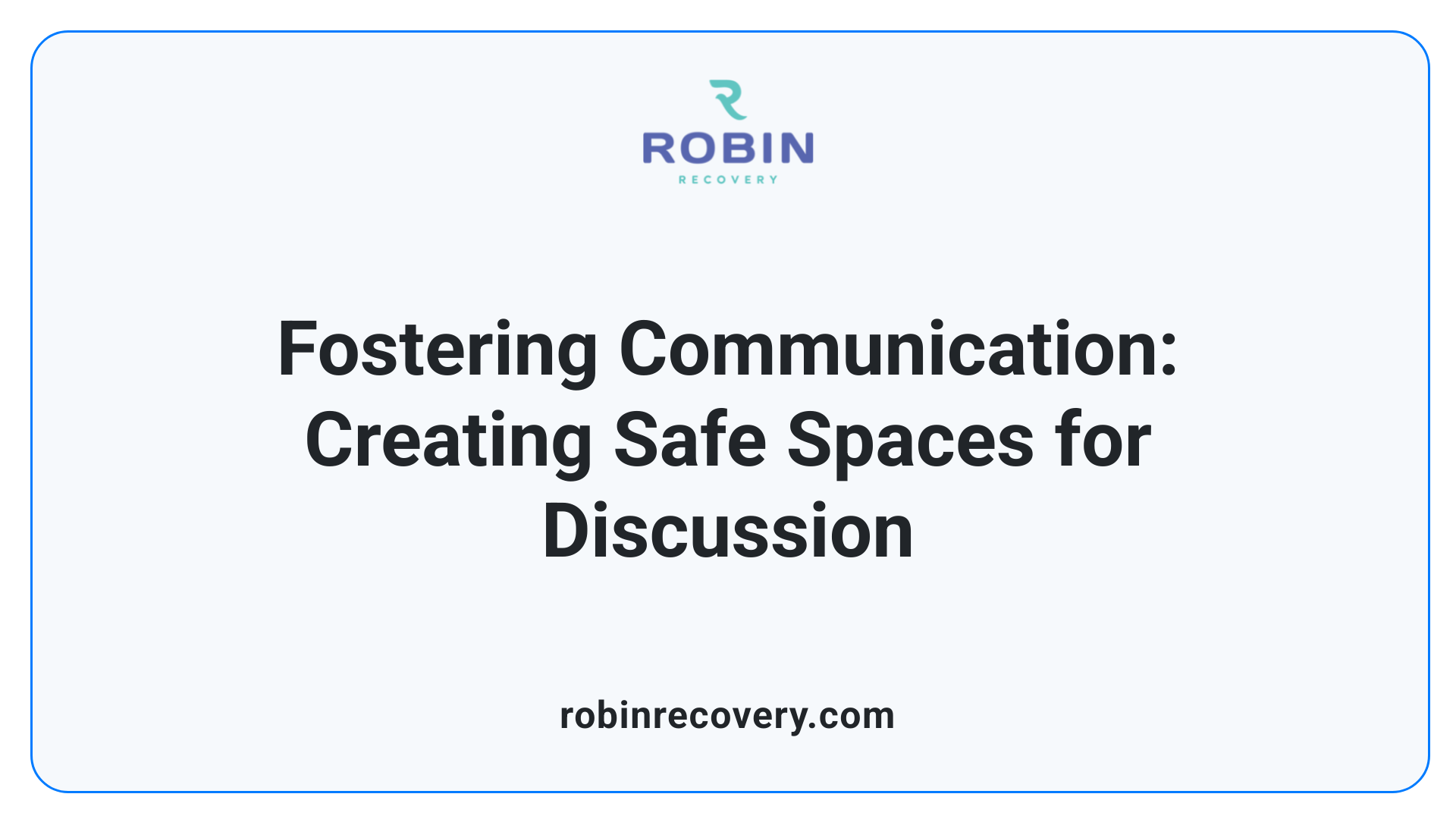
What are the key elements needed in crafting constructive conversations about addiction?
Creating a conducive atmosphere is vital when discussing addiction with a loved one. Here are essential elements to consider:
- Calm and Familiar Location: Choose a private, comfortable spot free from distractions and the influence of substances. This ensures both parties feel secure and focused.
- Timing and Mood: Avoid moments when the individual is under the influence or stressed. Select a time when they are sober and calm for better receptiveness.
- Gentle Start: Initiate the conversation with soft expressions of concern. For instance, say, "I've noticed something recently and would like to chat about it," which opens the dialogue in a non-threatening manner.
Strategies for open conversations
Engaging effectively during these discussions is vital for fostering understanding. Here are some strategies to make the conversation more constructive:
- Use Specific Examples: Share observed behaviors or situations that raised concern, helping the individual recognize how their actions may affect themselves and those around them.
- Open-Ended Questions: Encourage sharing by asking open-ended questions. This strategy promotes a flow of dialogue, helping them express their feelings regarding their substance use.
- Active Listening: Listen attentively to their responses, validating their feelings without passing judgment. This builds trust and openness within the conversation.
- Reflect and Revisit: If the initial dialogue doesn't go as planned, stay calm and consider discussing the matter again later, demonstrating your commitment to supporting their well-being.
Understanding and Managing Emotional Reactions
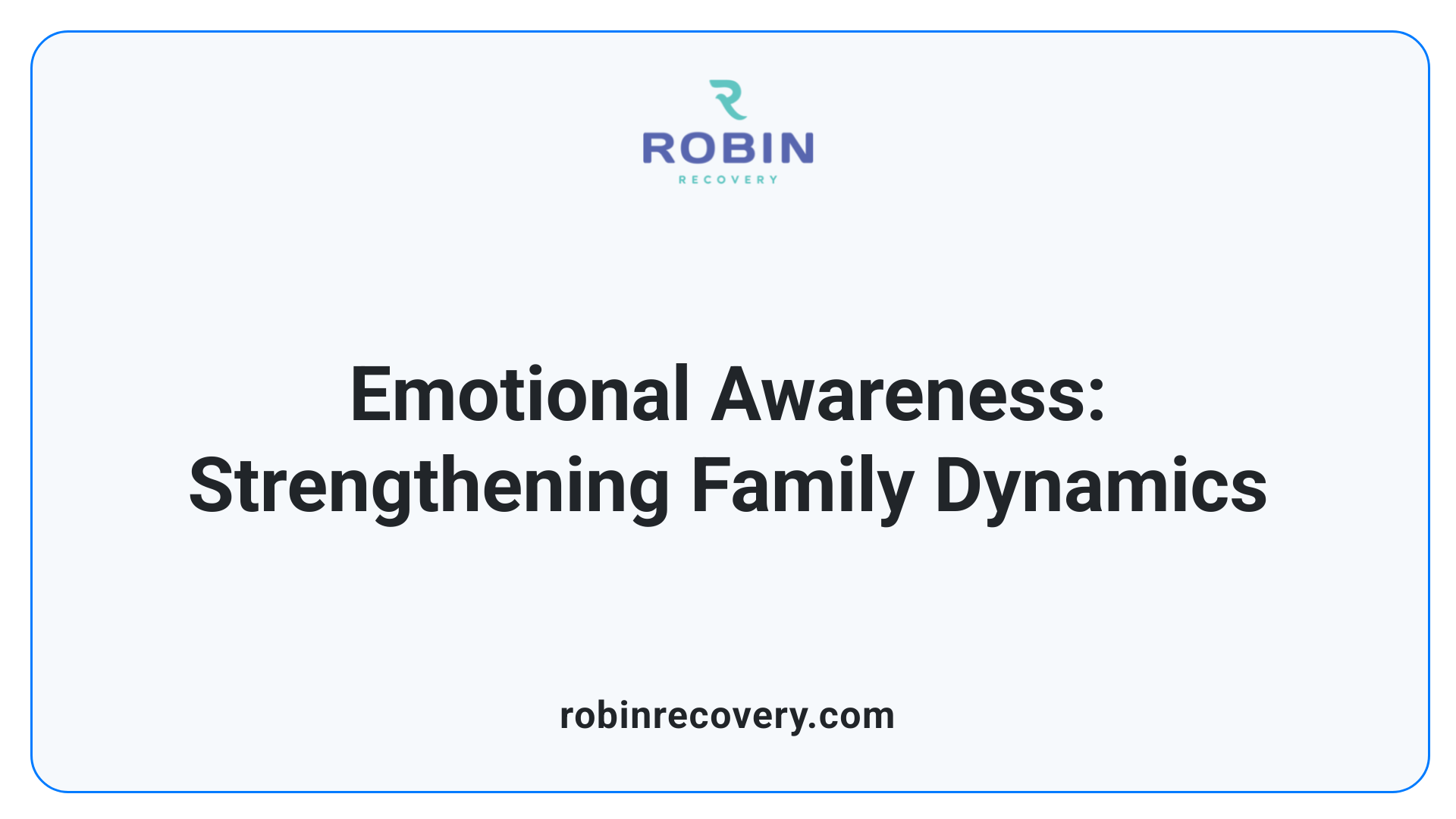
Why is emotional awareness important in discussions about addiction?
Emotional awareness plays a vital role in conversations about addiction. Acknowledging emotions can prevent discussions from becoming reactive and confrontational. By pinpointing your emotional triggers and recognizing those of your loved ones, you promote a more constructive dialogue.
When engaging in these sensitive topics, consider using self-reflection techniques. Ask yourself, "Is it kind? Is it true? Is it important?" This reflective process can help steer conversations in a positive direction.
Impact of emotions on family dynamics
Emotions significantly influence family dynamics, particularly when addiction is involved. Feelings of anger, resentment, or fear can hinder communication, making it challenging to express support. Acknowledging these emotions and managing them is essential for fostering understanding among family members.
For instance, employing empathy can help break down barriers and encourage open discussions. This not only strengthens relationships but also supports a collective effort towards recovery.
Emotional Awareness Techniques Impact on Family Dynamics Outcomes Self-reflection questions Reduces misunderstandings Improved communication Empathetic listening Fosters supportive dialogue Strengthened relationships Recognizing triggers Enhances emotional regulation Facilitates recovery discussions
Navigating Conversations with Older Adults Facing Addiction
What specific considerations are there when discussing addiction with older family members?
When discussing addiction with older adults, it's important to factor in age-related aspects such as potential cognitive decline and different life stressors they may face. Many older adults primarily struggle with alcohol abuse, making it crucial for family members to approach these conversations with sensitivity.
Family therapy can be an essential resource, guiding older individuals to confront feelings of guilt and shame associated with their substance use. Patience is key; having open, honest dialogues empowers these adults toward recovery without feeling judged.
Moreover, conversations should emphasize the unique challenges that come with aging, creating a supportive environment where they feel safe to share their experiences. Engaging in active listening demonstrates understanding, paving the way for a more effective dialogue that fosters recovery and familial support.
Building Stronger Familial Support Systems
By approaching addiction with empathy, preparation, and informed strategies, families can foster an atmosphere of support and understanding, crucial for the recovery journey. Therapy, education, and empathetic dialogue are the cornerstones of encouraging constructive change and nurturing healthier family dynamics. Engagement in these practices reinforces the message that recovery is a family journey and that healing extends beyond the individual to the entire family system.
References
- National Helpline for Mental Health, Drug, Alcohol Issues - SAMHSA
- Chapter 3—Family Counseling Approaches - NCBI
- Talking to someone about their drinking or drug use
- Having Hard Conversations in Recovery | Ashley Addiction Treatment
- Navigating the Difficult Talk of Drug Rehab with a Loved One
- Reconnecting With Your Family During Addiction Recovery
- How to talk to a family member or friend about their drug or alcohol use
- Navigating Conversations About Your Diagnosis With Adult Children
- Intervention: Help a loved one overcome addiction - Mayo Clinic
- How to Talk to an Addicted Family Member - Tranquil Shores
